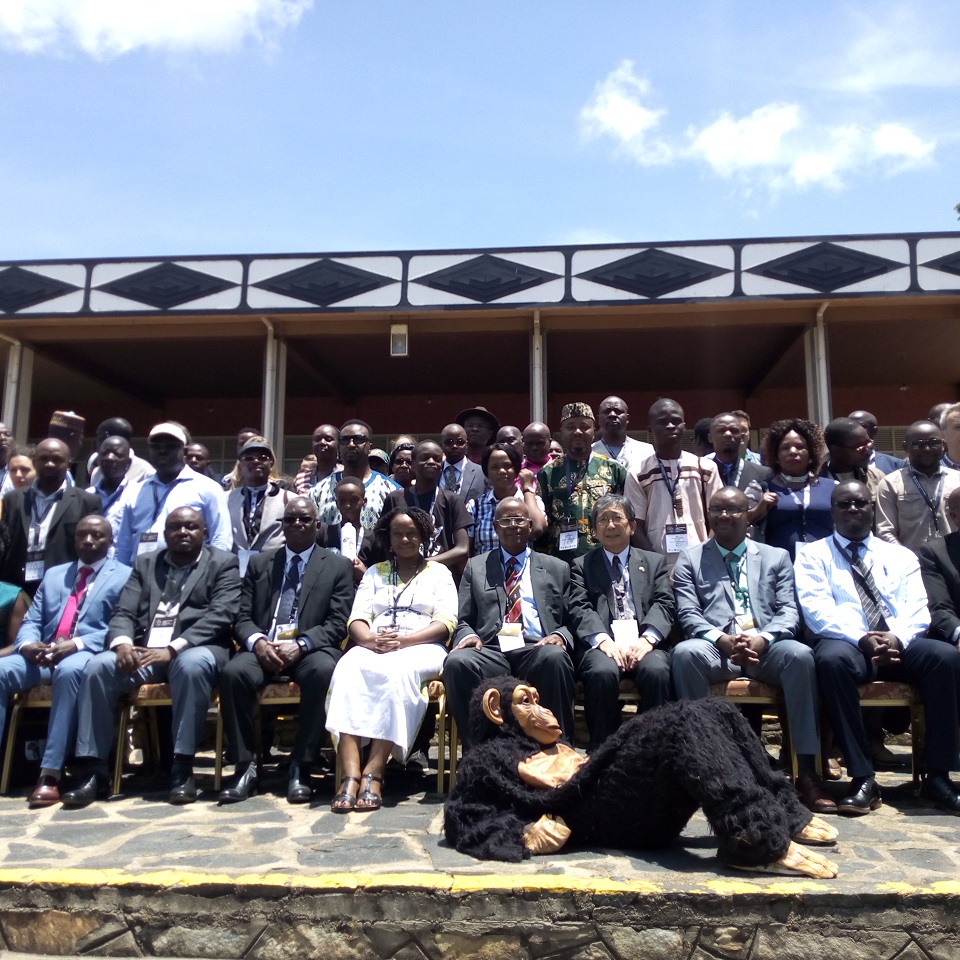
ENTEBBE – The African Primatological Society (APS) conference commenced on Tuesday, September 3, at Imperial Botanical Hotel, in Entebbe, the on-going forum has attracted delegates from over 30 countries.
The four-day-long event has united researchers, policymakers, tourism experts, government officials; diplomats among others have convened in Entebbe to discuss the challenges and opportunities in regard to primates
Speaking at the opening ceremony, Dr.Gladys Kalema Zikusooka, the Chairperson of the Organising Committee who doubles as the Vice President of the African Primatological Society revealed that we should protect primates not only for monetary value but also for the benefit of our future generations and national heritage.
“We are glad to host all these delegates for a week-long event which is moving on well so far,” noted Dr Kalema.
Adding that; “We also started a coffee brand under the Conservation through Public Health (CPTH) to protect the gorillas and also impact the lives of the people. I thank all the partners that have stood with us since the launch and the days to come,” Dr. Kalema stated.
Dr. Inza Kone, the President of African Primatological Society said;
“We established it in 2014 and I am happy that most of the pioneer members are here with us to witness it grow. Most primates are endangered with about 62 percent all over the world and if anything is not done in the next 50 years it will be humans living in the world. They are facing challenges like bush meat trading, increased destruction of their habitats and Ebola among other diseases.”
“This is the reason we need to conserve and have young primatologists on board to develop strategies and associations to work together in West, East, Central, North Africa and Madagascar to protect our heritage. We trust this will inspire further partnership for an impactful society and all contributions should not be undermined,” he asserted.

The Minister of Tourism, Wildlife and Antiquities, Hon Ephraim Kamuntu said;
“When Churchill visited Uganda, his perception was authentic that we are the source of the Nile with the green vegetation, flora and fauna, wildlife and more. We have 54 percent of the world’s primates here that you should see before going back. The opportunity cost of coming to Uganda cannot be taken for granted and we welcome you to the Pearl of Africa. The largest number are found in national parks, reserves and are threatened due to deforestation, poaching, meat for trade among other evil acts though we are doing a lot to combat this through digging trenches, beehives, electric fencing although it is very expensive.”
The minister also elaborated that these challenges are not unique to Uganda but to the rest of the world, he stated that now is the opportune moment to promote research and Tourism.
“We have made significant strides in Gorilla tracking and chimpanzee viewing that is very popular and their preservation has won us International accolades and appearances on CNN, Nat Geo to mention but a few and it has rewarded us handsomely with a lot of revenue,” he explained.
The conference is the first of its kind in Uganda and it has attracted both local players and international stakeholders such as Uganda Tourism Board (UTB), Uganda Wildlife Authority (UWA), Uganda Wildlife Educational Centre (UWEC), Ministry of Tourism Wildlife and Antiquities, University of Minnesota, Ebo Forest Research Project among others.
Uganda is home of over 15 species that include; mountain gorillas, Eastern chimpanzee, Red colobus monkey, golden monkey, black and white colobus monkey, Red-tailed monkey, Grey-cheeked mangabey, De Brazzas, bush babies, Vervet Monkey, Eastern patas monkey, Olive baboon, Blue Monkey, L’hoest’s monkey and Potto.





